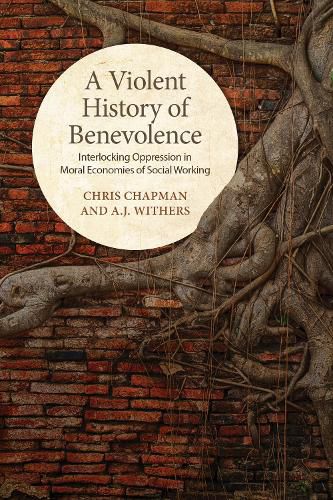Readings Newsletter
Become a Readings Member to make your shopping experience even easier.
Sign in or sign up for free!
You’re not far away from qualifying for FREE standard shipping within Australia
You’ve qualified for FREE standard shipping within Australia
The cart is loading…






A Violent History of Benevolence traces how normative histories of liberalism, progress, and social work enact and obscure systemic violences. Chris Chapman and A.J. Withers explore how normative social work history is structured in such a way that contemporary social workers can know many details about social work’s violences, without ever imagining that they may also be complicit in these violences. Framings of social work history actively create present-day political and ethical irresponsibility, even among those who imagine themselves to be anti-oppressive, liberal, or radical.
The authors document many histories usually left out of social work discourse, including communities of Black social workers (who, among other things, never removed children from their homes involuntarily), the role of early social workers in advancing eugenics and mass confinement, and the resonant emergence of colonial education, psychiatry, and the penitentiary in the same decade. Ultimately, A Violent History of Benevolence aims to invite contemporary social workers and others to reflect on the complex nature of contemporary social work, and specifically on the present-day structural violences that social work enacts in the name of benevolence.
$9.00 standard shipping within Australia
FREE standard shipping within Australia for orders over $100.00
Express & International shipping calculated at checkout
A Violent History of Benevolence traces how normative histories of liberalism, progress, and social work enact and obscure systemic violences. Chris Chapman and A.J. Withers explore how normative social work history is structured in such a way that contemporary social workers can know many details about social work’s violences, without ever imagining that they may also be complicit in these violences. Framings of social work history actively create present-day political and ethical irresponsibility, even among those who imagine themselves to be anti-oppressive, liberal, or radical.
The authors document many histories usually left out of social work discourse, including communities of Black social workers (who, among other things, never removed children from their homes involuntarily), the role of early social workers in advancing eugenics and mass confinement, and the resonant emergence of colonial education, psychiatry, and the penitentiary in the same decade. Ultimately, A Violent History of Benevolence aims to invite contemporary social workers and others to reflect on the complex nature of contemporary social work, and specifically on the present-day structural violences that social work enacts in the name of benevolence.